- Home
- Nora Roberts
Hot Ice Page 23
Hot Ice Read online
Page 23
pulled out the glossies of Doug and Whitney and waved them under her nose.
Not by a flicker did she show any recognition. Perhaps they’d left abruptly, but there’d been twenty dollars American money on the dresser. Their smiles hadn’t reminded her of a lizard. She shook her head.
Remo peeled a ten-dollar bill from the wad he carried. The woman simply shrugged and handed him back the photos. Her grandson had spent an hour the evening before playing with his new pig. She preferred his smell to Remo’s cologne.
“Look, Grandma, we know they got off here. Why don’t you make this easy on everybody.” As incentive, he peeled back another ten.
The innkeeper gave him a blank look and another shrug. “They are not here,” she said, surprising him with her precise English.
“I’ll just take a look myself.” Remo started for the stairs.
“Good morning.”
Like Doug, Remo had no trouble recognizing a cop, in a one-horse town in Madagascar or in an alley in the lower Forties.
“I am Captain Sambirano.” Stiffly proper, he offered his hand. He admired Remo’s taste in clothes, noticed the still-puffy scar on his cheek and the cool grimness in his eye. Neither did he miss the healthy wad of bills in his hand. “Perhaps I can be of some assistance.”
He didn’t like dealing with cops. Remo considered them basically unstable. In a year, he could make approximately three times what the average police lieutenant pulled in, for doing the same thing. Backwards.
But more, he didn’t like the thought of going back to Dimitri with empty hands. “I’m looking for my sister.”
Doug had said he had brains. Remo put them to use.
“She ran off with this guy, nothing but a two-bit thief. The girl’s infatuated, if you know what I mean.”
The captain nodded politely. “Indeed.”
“Dad’s worried sick,” Remo improvised. He pulled out a thin Cuban cigar from a flat gold case. Offering one, he noticed the captain’s appreciation of the fragrance and the glint of classy metal. He knew which approach to take. “I’ve managed to track them this far, but…” He let the sentence trail off and tried to look like a concerned brother. “We’ll do anything to get her back, Captain. Anything.”
While he let that sink in, Remo pulled out the photos. The same photos, the captain noted silently, that the other man had shown him only the day before. His story had been that of a father seeking his daughter as well, and as well, he’d offered money.
“My father’s offering a reward to anyone who can help us. Understand that my sister’s my father’s only daughter. And the youngest,” he added for clout. He remembered, without much affection, how pampered his own kid sister had been. “He’s prepared to be generous.”
Sambirano looked down at the pictures of Whitney and Doug. The newlyweds who’d left town rather abruptly. He glanced over at the innkeeper who kept her lips folded in disapproval. Those eating breakfast understood the look and went back to their meal.
The captain wasn’t impressed by Remo’s story any more than he’d been impressed by Doug’s the day before. Whitney beamed up at him. She, however, had impressed him, then and now. “A lovely woman.”
“You can imagine how my father feels, Captain, knowing she’s with a man like him. Scum.”
There was enough passion in the word to let the captain know the animosity wasn’t feigned. If one man found the other, one would die. It mattered little to him, as long as neither died in his town. He saw no reason to mention the man in the panama with a similar set of pictures.
“A brother,” he said slowly as he drew the cigar under his nose, “is responsible for the welfare of his sister.”
“Yeah, I’m worried sick about her. God knows what he’ll do when her money runs out or when he just gets tired of her. If there’s anything you can do… I promise to be very grateful, Captain.”
The captain had chosen law enforcement in the quiet little town because he hadn’t much ambition. That is, he didn’t care to sweat in the fields or callous his hands on a fishing boat. But he did believe in making a tidy profit. He handed Remo the photographs. “I sympathize with your family. I have a daughter myself. If you’ll come with me to my office, we can discuss this further. I believe I can help you.”
Dark eyes met dark eyes. Each recognized the other for what he was. Each accepted that business was indeed business. “I’d appreciate that, Captain. I’d appreciate that very much.”
As he walked through the door, Remo touched the scar on his cheek. He could almost taste Doug’s blood. Dimitri, he thought with a flood of relief, was going to be very pleased. Very pleased.
C H A P T E R
11
Over her breakfast coffee, Whitney added Jacques’s fifty-dollar advance and retotaled the list of Doug’s expenses. A treasure hunt, she decided, had quite an overhead.
While the others had slept during the night, Doug beside her in the tent, Jacques content under the stars, Whitney had lain awake for some time, going over the journey. In many ways it had been a lark, an exciting, somewhat twisted vacation complete with souvenirs and a few exotic meals. If they never found the treasure, she would’ve written it off just that way—except for the memory of a young waiter who’d died only because he’d been there.
Some people are born with a certain comfortable naiveté that never leaves them, mainly because their lives remain comfortable. Money can provoke cynicism or cushion it.
Perhaps her wealth had sheltered her to some extent, but Whitney had never been naive. She counted her change not because she had to worry about pennies, but because she expected value for value. She accepted compliments with grace, and a grain of salt. And she knew to some, life was cheap.
Death could be a means to an end, something accomplished for revenge, for amusement, or for a fee. The fee might vary—the life of a statesman was certainly worth more on the open market than the life of a ghetto drug dealer. One might be worth no more than the price of a syringe full of heroin, the other hundreds of thousands of cool, clean Swiss francs.
A business, some had taken the exchange of life for gain to the height and routine of a brokerage firm. She’d known it before, considered it the way one considered many of the daily social ills. Aloofly. But now she’d dealt with it personally. An innocent man had died, and she might very well have killed a man herself. There was no telling how many other lives had been lost, or bought and sold, in the quest for this particular pot of gold.
Dollars and cents, she mused as she looked down at her neat columns and totals on the notepad. But it had become much more than that. Perhaps like many of the carelessly wealthy, she’d often skimmed over the surface of life without seeing the eddies and currents the less fortunate had to pit themselves against. Perhaps she’d always taken such things as food and shelter for granted until the last few weeks. And perhaps Whitney’s own personal view of right and wrong often depended on circumstances and her own whims. But she had a strong sense of good and bad.
Doug Lord might be a thief, and in his life he might’ve done innumerable things that were wrong by society’s standards. She didn’t give a hang about society’s standards. He was, she’d come to believe, intrinsically good, just as she believed Dimitri was intrinsically bad. She believed it, not naively, but completely, with all the healthy intelligence and instinct she’d been born with.
She’d done something more while the others had slept. Restless, Whitney had finally decided to glance through the books Doug had taken from the Washington library. To pass the time, she’d told herself as she flicked on a flashlight and located the books. As she’d begun to read about the jewels, the gems lost over the centuries, she’d become caught up. The illustrations hadn’t particularly moved her. Diamonds and rubies meant more in three dimensions. But they’d made her think.
Reading through the history of this necklace, that diamond, she’d understood, personally, that what men and women craved for adornment, others had died for. Greed,
desire, lust. They were things Whitney could understand, but passions she felt too shallow to die for.
But what of loyalty? Whitney had gone back over the words she’d read in Magdaline’s letter. She’d spoken of her husband’s grief over the queen’s death, but more, his obligation to her. How much had the man Gerald sacrificed for loyalty and what had he kept in a wooden box? The jewels. Had he kept his heritage in a wooden box and mourned a way of life that could never be his again?
Was it money, was it art, was it history? As she’d closed the book she had been left uncertain. Whitney had respected Lady Smythe-Wright, though she’d never quite comprehended her fervor. Now she was dead for little more than having a belief that history, whether it was written in dusty volumes or glittered and shone, belonged to everyone.
Marie had lost her life, along with hundreds of others, with rough justice on the guillotine. People had been driven from their homes, hunted, and slaughtered. Others had starved in the streets. For an ideal? No, Whitney doubted people often died for ideals any more than they truly fought for them. They’d died because they’d been caught up in something that had swept over them and carried them along whether they wanted to go or not. What would a handful of jewels have meant to a woman walking up the steps to the guillotine?
It made a treasure hunt seem foolish. Unless—unless it had a moral. Maybe it was time Whitney discovered her own.
Because of this, and because of a young waiter named Juan, Whitney was determined to find the treasure, and to kick dust in Dimitri’s face when she did.
She faced the morning confidently. No, she wasn’t naive. Still, Whitney held to the basic belief that good would ultimately outdo bad—especially if good was very clever.
“What the hell’re you going to do when the batteries on that thing run down?”
Whitney smiled up at Doug before she slipped the thin, hand-held calculator and her notepad back in her bag. She wondered what he would think if he knew she’d spent several hours during the night analyzing him and what they were doing. “Duracell,” she said sweetly. “Would you like some coffee?”
“Yeah.” He sat down, a bit leery of the way she poured and served so cheerfully.
She looked exquisite. He’d figured a few days on the road would leave her a bit haggard, a little rough around the edges. He scraped his palm over the stubble on his own chin. Instead, she looked radiant. Her pale, angel-blonde hair shone as it rippled down her back. The sun had warmed her skin, bringing up touches of rose that only accented its flawlessness and the classic line of bone. No, she looked anything but haggard at the moment.
Doug accepted the coffee and drank deeply.
“This is a lovely spot,” Whitney said, bringing up her knees and circling them with her arms.
He glanced around. Moisture dripped from leaves in quiet plip-plops. The ground was damp and spongy. He slapped at a mosquito and wondered how long the repellent would hold out. The mist rose off the ground in little fingers, like steam in a Turkish bath. “If you like saunas.”
Whitney cocked a brow. “Woke up on the wrong side of the bedroll, didn’t we?”
He only grunted. He’d woken up itchy as any healthy man would after spending the night next to a healthy woman without having the luxury of taking things to their natural conclusion.
“Look at it this way Douglas. If there were an acre of this in Manhattan, people would be scrambling for it, piling in on top of each other.” She lifted her hands, palms up. Birdsong burst out in an ecstacy of sound. A chamelion crawled onto a dull gray rock and slowly faded into it. Flowers seemed to pour out of the ground and the green, green of leaves and ferns still damp with dew gave everything a lushness. “We’ve got it all to ourselves.”
He poured a second cup of coffee. “I figured a woman like you would prefer crowds.”
“A time and place, Douglas,” she murmured. “A time and place.” Then she smiled, so simply, so exquisitely, he felt his heart stop. “I like being here, with you.”
The coffee had scalded his tongue, but he didn’t notice. He swallowed it, still staring at her. He’d never had any problem with women, pouring on the rough-edged, cocky charm that he’d learned very young they found appealing. Now, when he could’ve used a surplus of what came so handily to him, he couldn’t find any at all. “Oh yeah?” he managed.
Amused that he could be thrown off so easily, she nodded. “Yeah. I’ve given it some thought.” Leaning over, she kissed him very, very lightly. “Just what do you think of that?”
He might stumble, but years of experience had taught him how to land on his feet. Reaching out, he gathered her hair in his hand. “Well, maybe we should”—he nipped at her lip—“discuss it.”
She liked the way he kissed without quite kissing, the way he held her without really holding her. She remembered what it had been like when he’d done both, thoroughly. “Perhaps we should.”
Their lips did no more than tease each other’s. Eyes open, they nibbled, testing, tempting. They didn’t touch. Each was used to leading, to being in control. To lose the edge—that was the primary mistake, in matters of love and money, to both of them. As long as the reins were held, even loosely, then neither of them felt they would go where they didn’t lead.
Lips warmed. Thoughts clouded. Priorities shifted.
His hand tightened on her hair, hers gripped his shirt-front. In that rare instant that moves timelessly, they were caught close. Need became the leader, and desire, the map. Each surrendered without hesitation or regret.
Beyond the thick, moist leaves came a bright, bubbling blast of Cyndi Lauper.
Like children caught with their fingers deep in the cookie jar, Whitney and Doug sprang apart. Jacques’s clear tenor echoed with Cyndi’s cheery voice. Both of them cleared their throats.
“Company’s coming,” Doug commented and reached for a cigarette.
“Yes.” Rising, Whitney brushed at the seat of her thin, baggy slacks. They were a bit damp with dew, but the heat was already drying the ground. She watched sunbeams slash through the tops of cypress. “As I said, a spot like this seems to draw people. Well, I think I’ll…” She trailed off in surprise when his hand circled her ankle.
“Whitney.” His eyes were intense, as they became when least expected. His fingers were very firm. “One day, we’re going to finish this.”
She wasn’t used to being told what she’d do, and saw no reason to begin now. She sent him a long, neutral look. “Perhaps.”
“Absolutely.”
The neutral look became a hint of a smile. “Douglas, you’re going to find out I can be very contrary.”
“You’re going to find out I take what I want.” He said it softly, and her smile faded. “It’s my profession.”
“Man oh man, we got ourselves some coconuts.” Coming through the bush, Jacques shook the net bag he carried.
Whitney laughed when he pulled one out and tossed it to her. “Anyone got a corkscrew?”
“No problem.” Making use of a rock, Jacques slammed the coconut against it sharply. The chamelion scrambled away without a sound. With a grin, he broke the fruit apart and handed the two pieces to Whitney.
“How clever.”
“A little rum and you could have piña coladas.”
Brow arched, she handed a half to Doug. “Don’t be testy, darling. I’m sure you could’ve climbed up a palm tree too.”
Grinning, Jacques carved out a piece of the meat with a small knife. “It’s fady to eat anything white on Wednesdays,” he said with a simplicity that caused Whitney to study him more carefully. He popped the coconut into his mouth with a kind of guilty relish. “It’s worse not to eat at all.”
She looked at the fielder’s cap, the T-shirt, and the portable radio. It was difficult for her to remember that he was Malagasy, and part of an ancient tribe. With Louis of the Merina it had been easy. He’d looked the part. Jacques looked like someone she’d pass crossing Broadway and Forty-second.
“Are you
superstitious, Jacques?”
He moved his shoulders. “I apologize to the gods and spirits. Keep them happy.” Reaching in his front pocket, he drew out what looked like a small shell on a chain.
“An ody,” Doug explained, both amused and tolerant. He didn’t believe in talismans, but in making your own luck. Or cashing in on someone else’s. “It’s like an amulet.”
Whitney studied it, intrigued by the contrasts between Jacques’s Americanized dress and speech and his deep-seated belief in taboos and spirits. “For luck?” she asked him.
“For safety. The gods have bad moods.” He rubbed the shell between his fingers, then offered it to Whitney. “You carry it today.”
“All right.” She slipped the chain over her neck. After all, she thought, it wasn’t so odd. Her father carried a rabbit’s foot that had been tinted baby blue. The amulet fell along the same lines—or perhaps more along the lines of a St. Christopher’s medal. “For safety.”
“You two can carry on the cultural exchange later. Let’s get moving.” As he rose, Doug tossed the fruit back to Jacques.
Whitney winked at Jacques. “I told you he was often rude.”
“No problem,” Jacques said again, then reached into his back pocket where he’d carefully secured the stem of a flower. Pulling it out, he offered it to Whitney.
“An orchid.” It was white, pure, spectacular white and so delicate it seemed as though it would dissolve in her palm. “Jacques, it’s exquisite.” She touched it to her cheek before she threaded the stem through the hair above her ear. “Thank you.” When she kissed him, she heard the audible click of his swallow.
“Looks nice.” He began to gather gear quickly. “Lots of flowers

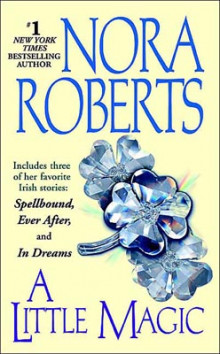 A Little Magic
A Little Magic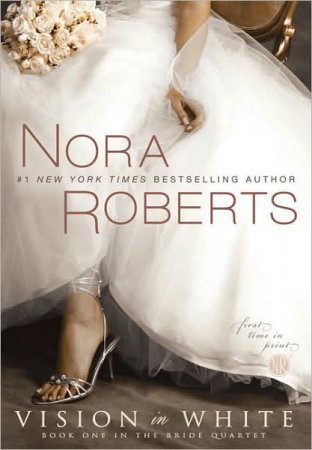 Vision in White
Vision in White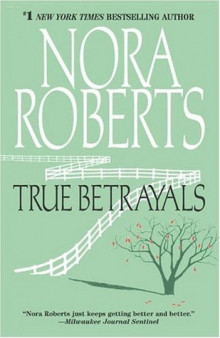 True Betrayals
True Betrayals The Next Always
The Next Always A Man for Amanda
A Man for Amanda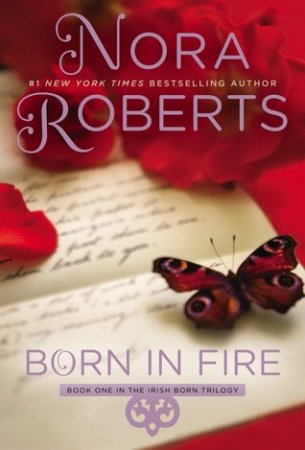 Born in Fire
Born in Fire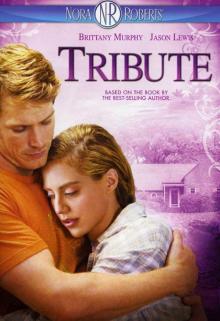 Tribute
Tribute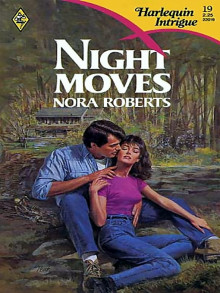 Night Moves
Night Moves Dance Upon the Air
Dance Upon the Air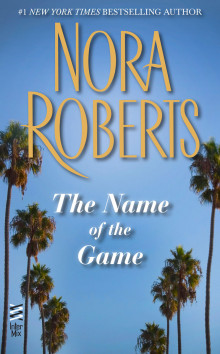 The Name of the Game
The Name of the Game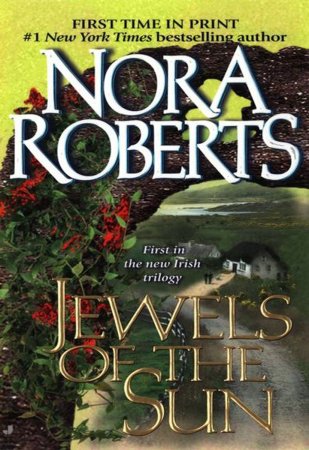 Jewels of the Sun
Jewels of the Sun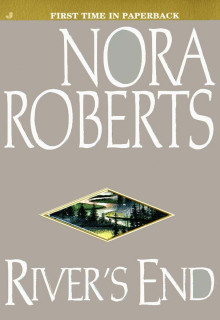 River's End
River's End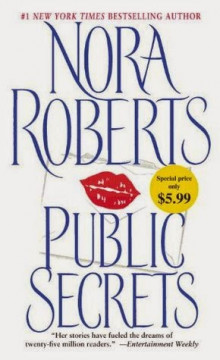 Public Secrets
Public Secrets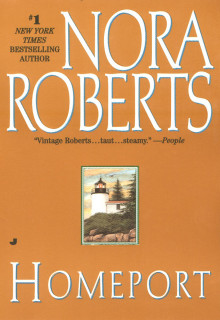 Homeport
Homeport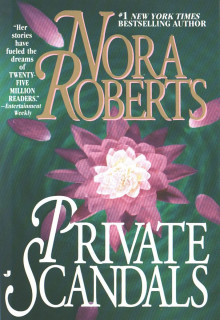 Private Scandals
Private Scandals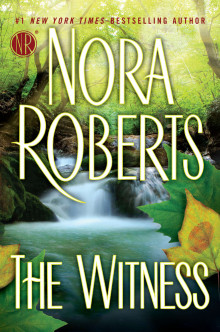 The Witness
The Witness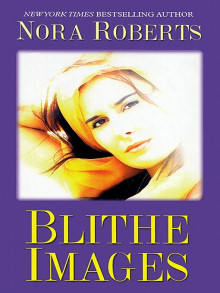 Blithe Images
Blithe Images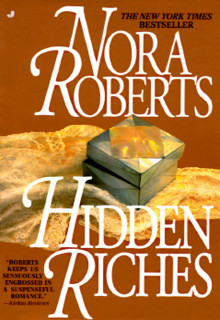 Hidden Riches
Hidden Riches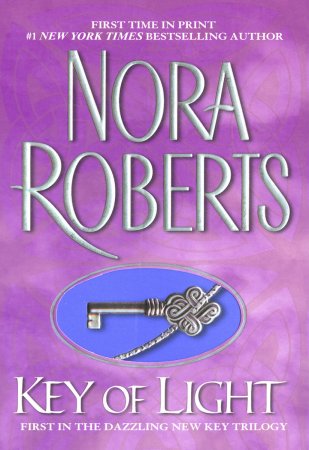 Key of Light
Key of Light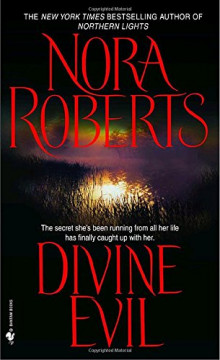 Divine Evil
Divine Evil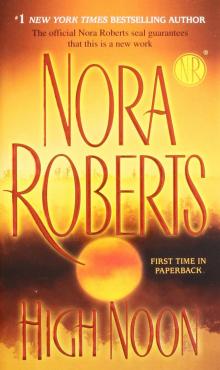 High Noon
High Noon Blue Dahlia
Blue Dahlia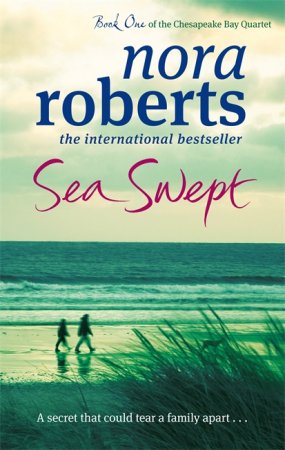 Sea Swept
Sea Swept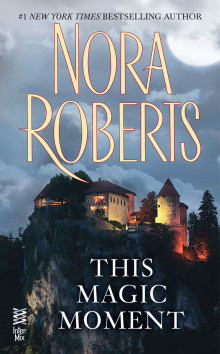 This Magic Moment
This Magic Moment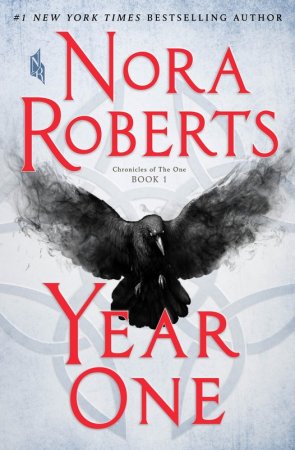 Year One
Year One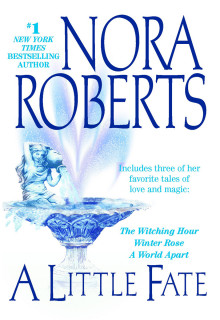 A Little Fate
A Little Fate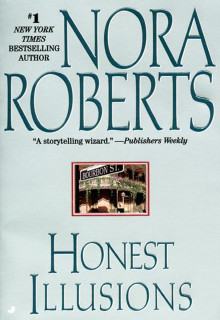 Honest Illusions
Honest Illusions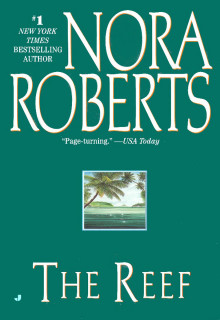 The Reef
The Reef Shelter in Place
Shelter in Place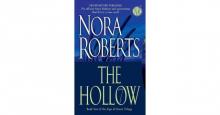 The Hollow
The Hollow Holding the Dream
Holding the Dream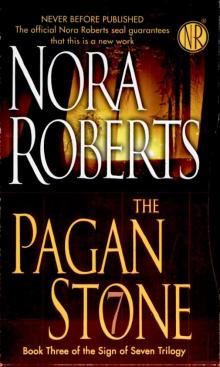 The Pagan Stone
The Pagan Stone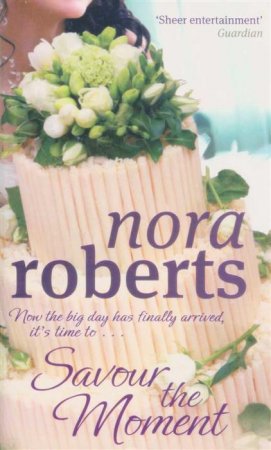 Savour the Moment
Savour the Moment The Perfect Hope
The Perfect Hope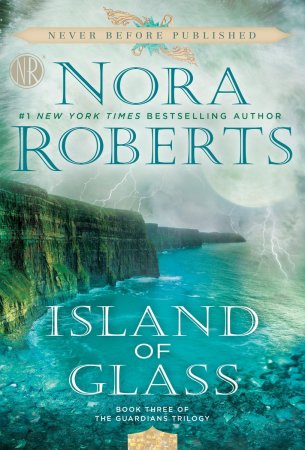 Island of Glass
Island of Glass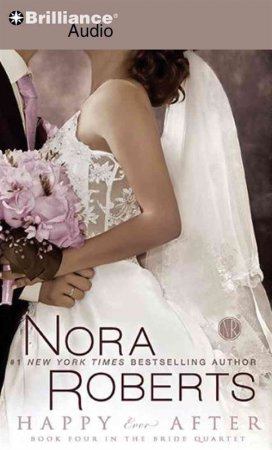 Happy Ever After
Happy Ever After Bed of Roses
Bed of Roses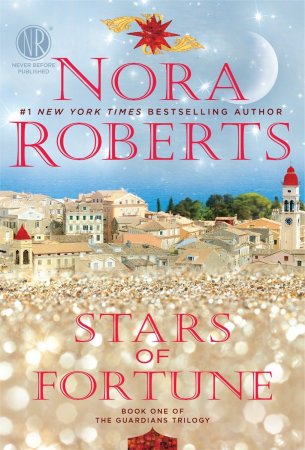 Stars of Fortune
Stars of Fortune Dark Witch
Dark Witch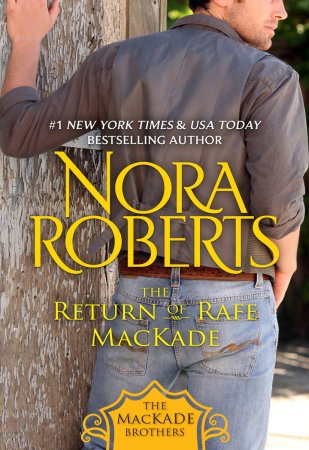 The Return of Rafe MacKade
The Return of Rafe MacKade Chesapeake Blue
Chesapeake Blue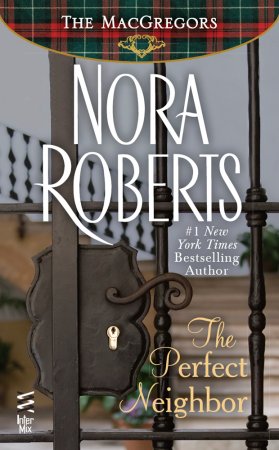 The Perfect Neighbor
The Perfect Neighbor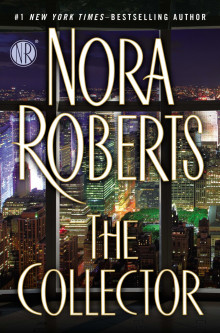 The Collector
The Collector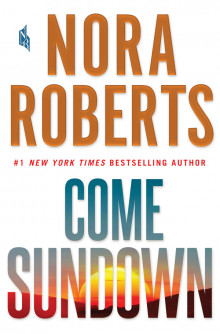 Come Sundown
Come Sundown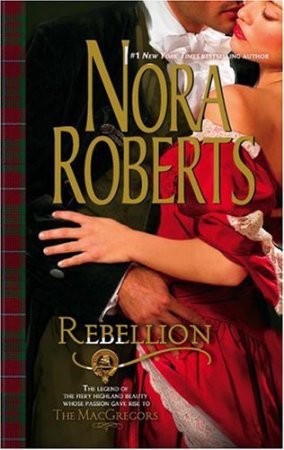 Rebellion
Rebellion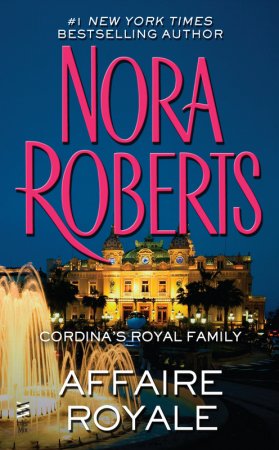 Affaire Royale
Affaire Royale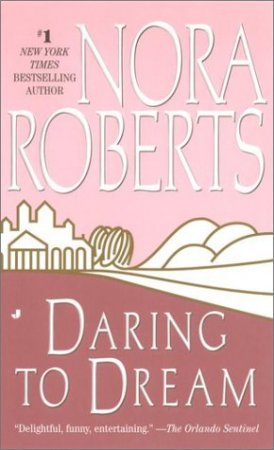 Daring to Dream
Daring to Dream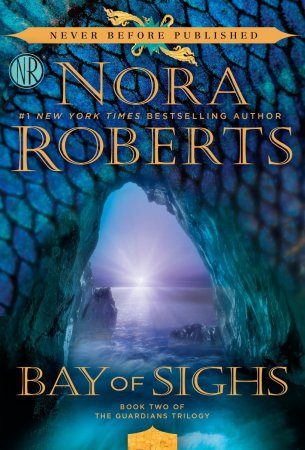 Bay of Sighs
Bay of Sighs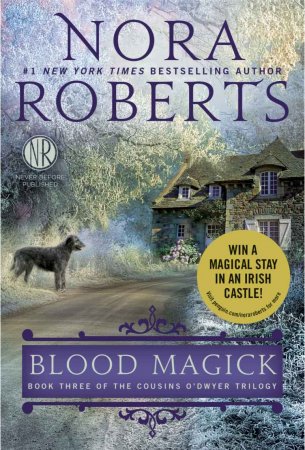 Blood Magick
Blood Magick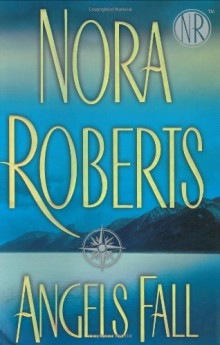 Angels Fall
Angels Fall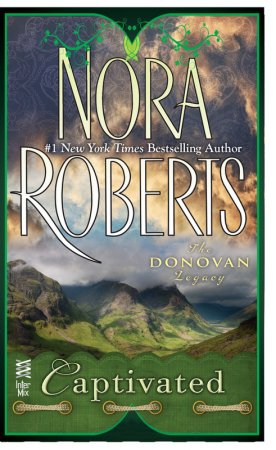 Captivated
Captivated The Last Boyfriend
The Last Boyfriend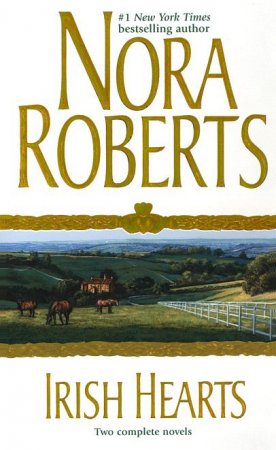 Irish Thoroughbred
Irish Thoroughbred Inner Harbor
Inner Harbor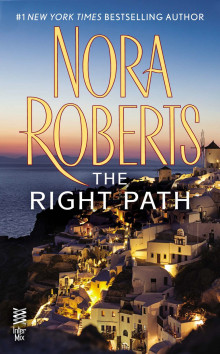 The Right Path
The Right Path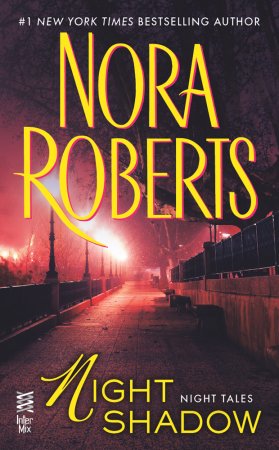 Night Shadow
Night Shadow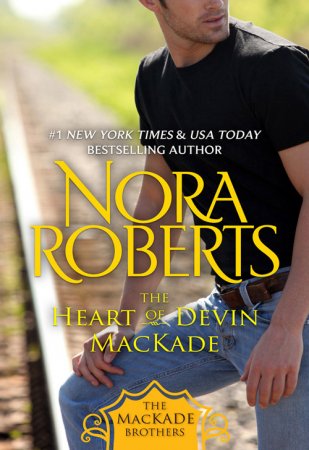 The Heart of Devin MacKade
The Heart of Devin MacKade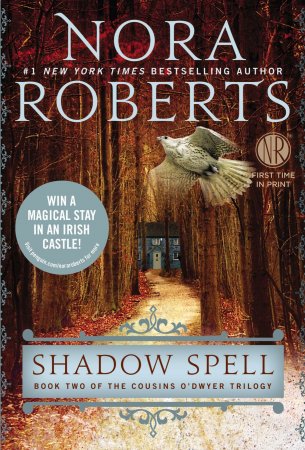 Shadow Spell
Shadow Spell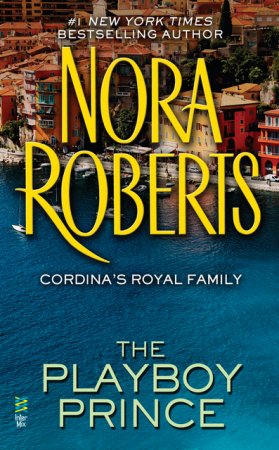 The Playboy Prince
The Playboy Prince The Fall of Shane MacKade
The Fall of Shane MacKade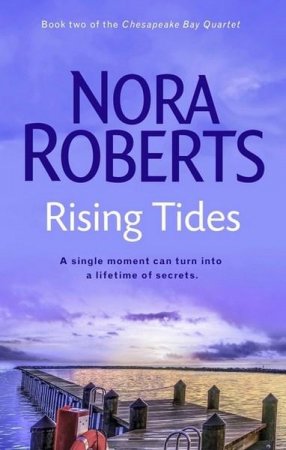 Rising Tides
Rising Tides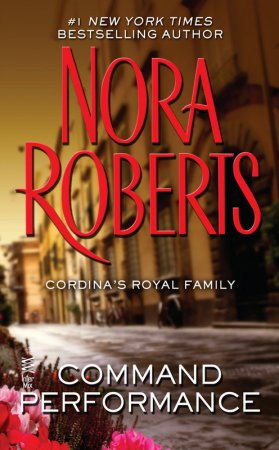 Command Performance
Command Performance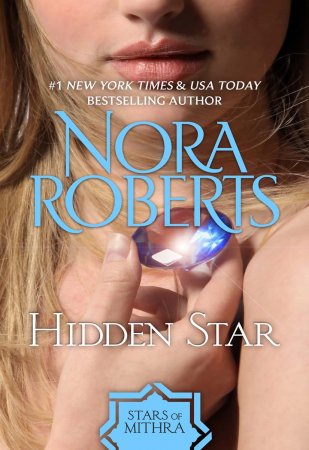 Hidden Star
Hidden Star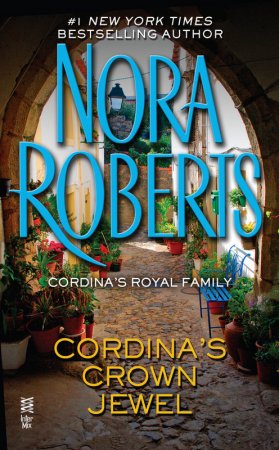 Cordina's Crown Jewel
Cordina's Crown Jewel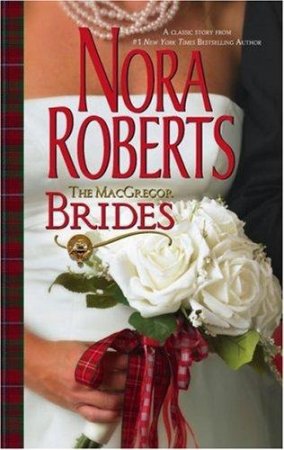 The MacGregor Brides
The MacGregor Brides The Pride of Jared MacKade
The Pride of Jared MacKade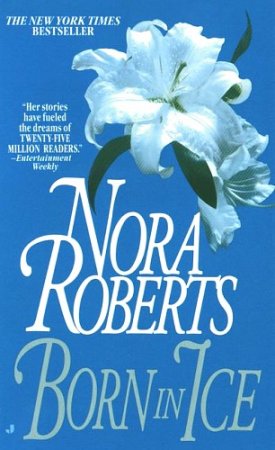 Born in Ice
Born in Ice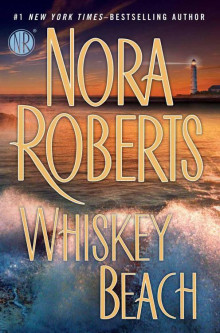 Whiskey Beach
Whiskey Beach The Last Honest Woman
The Last Honest Woman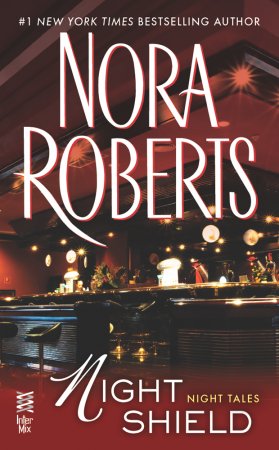 Night Shield
Night Shield Born in Shame
Born in Shame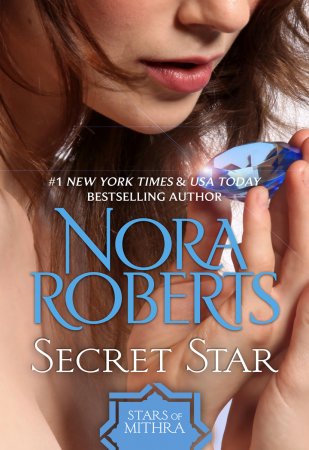 Secret Star
Secret Star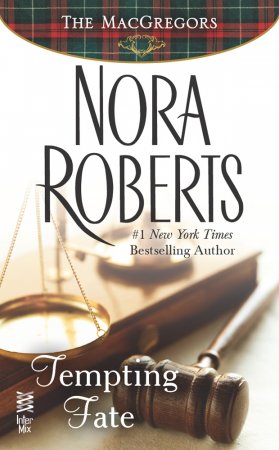 Tempting Fate
Tempting Fate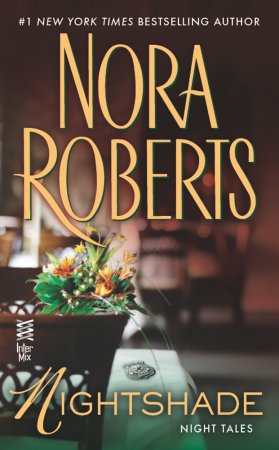 Nightshade
Nightshade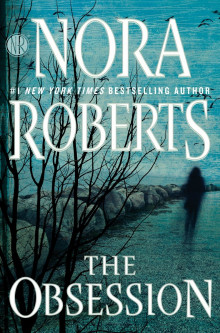 The Obsession
The Obsession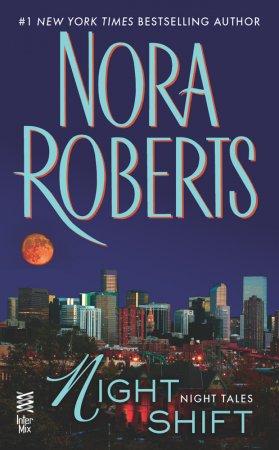 Night Shift
Night Shift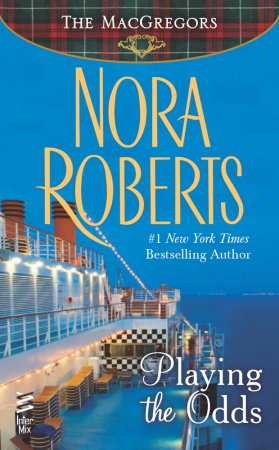 Playing The Odds
Playing The Odds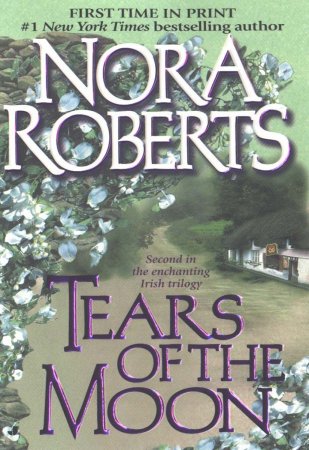 Tears of the Moon
Tears of the Moon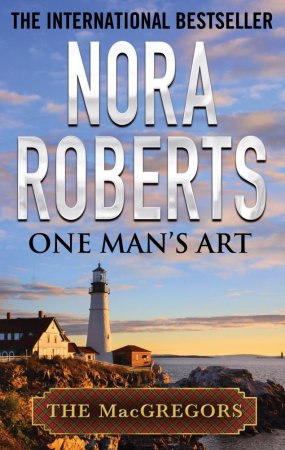 One Man's Art
One Man's Art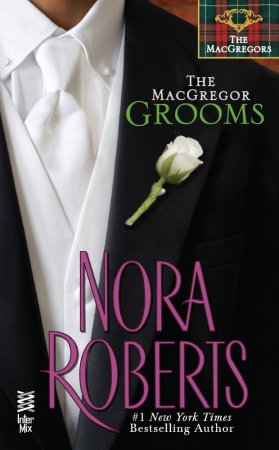 The MacGregor Groom
The MacGregor Groom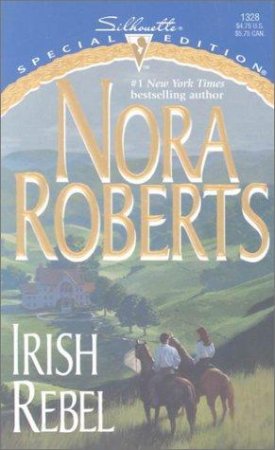 Irish Rebel
Irish Rebel Morrigan's Cross
Morrigan's Cross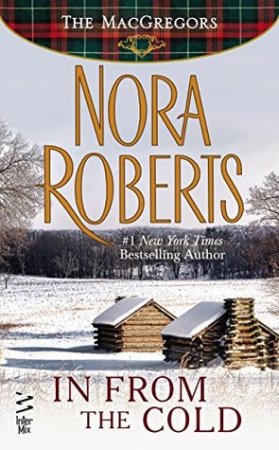 In From The Cold
In From The Cold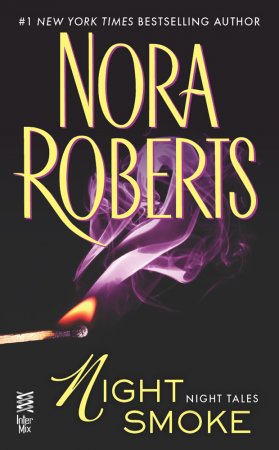 Night Smoke
Night Smoke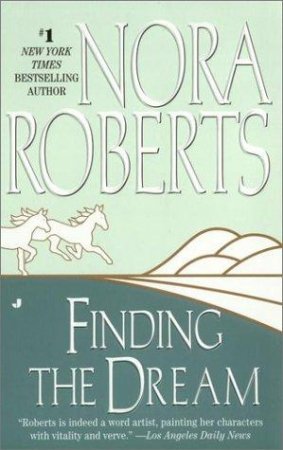 Finding the Dream
Finding the Dream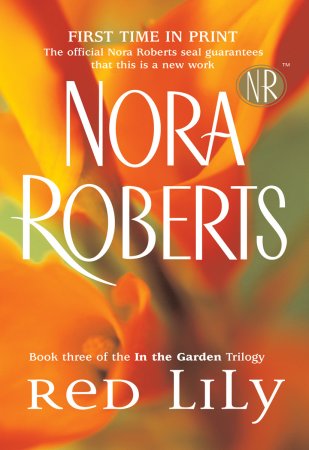 Red Lily
Red Lily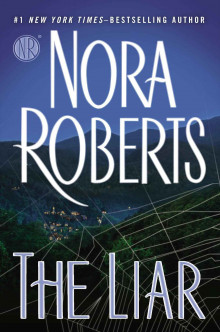 The Liar
The Liar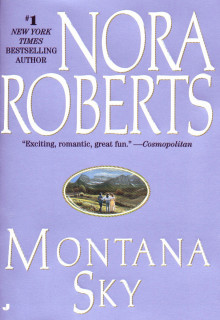 Montana Sky
Montana Sky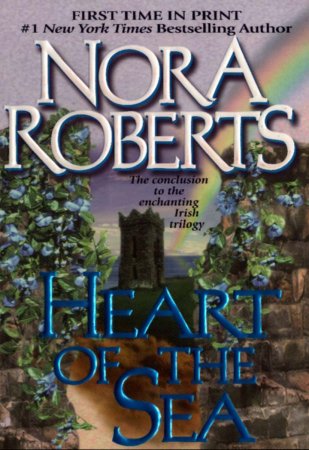 Heart of the Sea
Heart of the Sea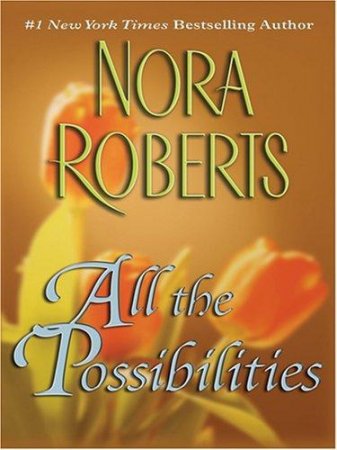 All The Possibilities
All The Possibilities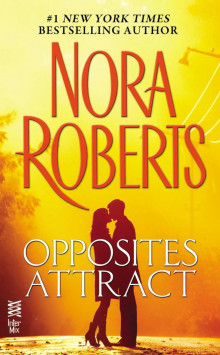 Opposites Attract
Opposites Attract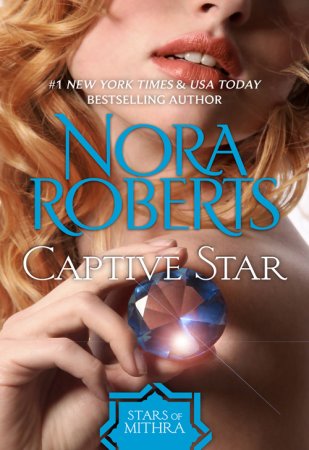 Captive Star
Captive Star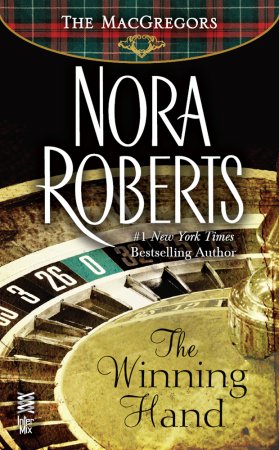 The Winning Hand
The Winning Hand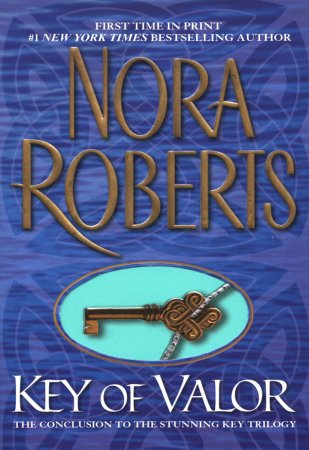 Key of Valor
Key of Valor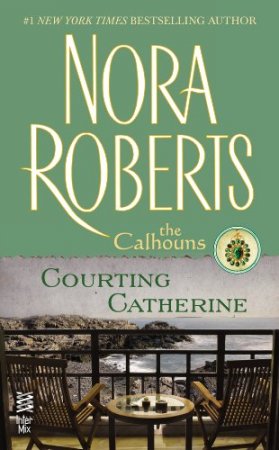 Courting Catherine
Courting Catherine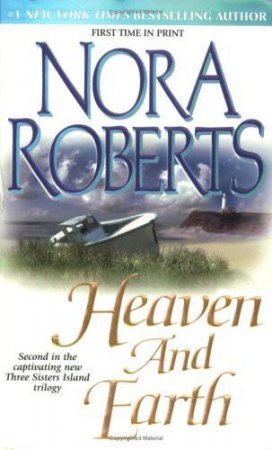 Heaven and Earth
Heaven and Earth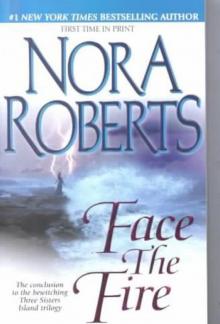 Face the Fire
Face the Fire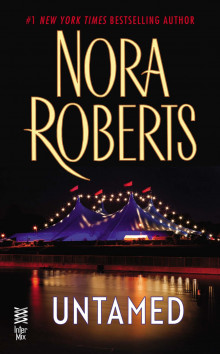 Untamed
Untamed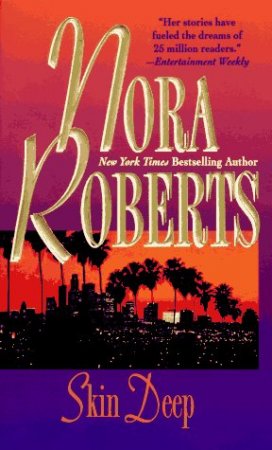 Skin Deep
Skin Deep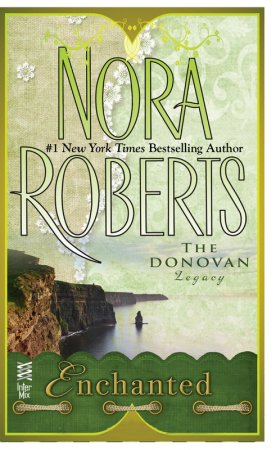 Enchanted
Enchanted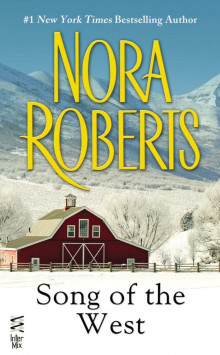 Song of the West
Song of the West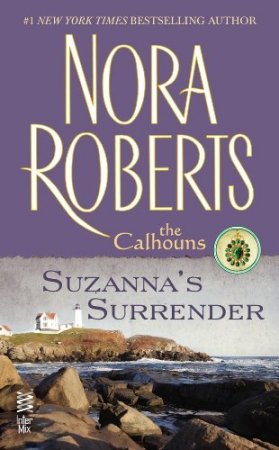 Suzanna's Surrender
Suzanna's Surrender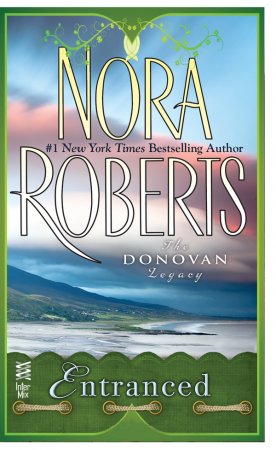 Entranced
Entranced Dance of the Gods
Dance of the Gods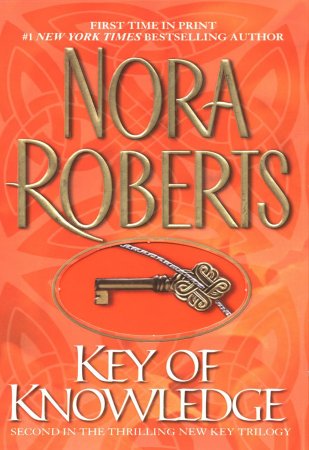 Key of Knowledge
Key of Knowledge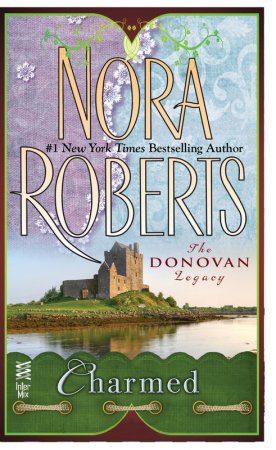 Charmed
Charmed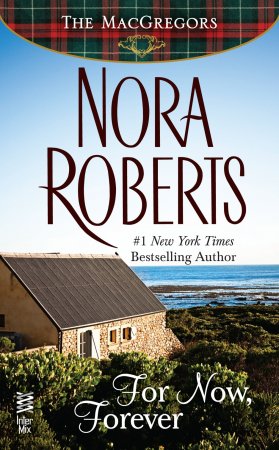 For Now, Forever
For Now, Forever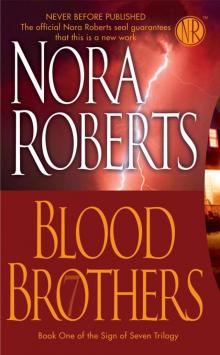 Blood Brothers
Blood Brothers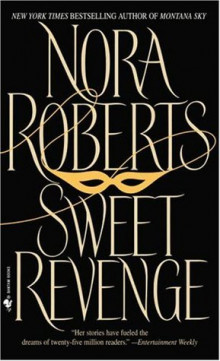 Sweet Revenge
Sweet Revenge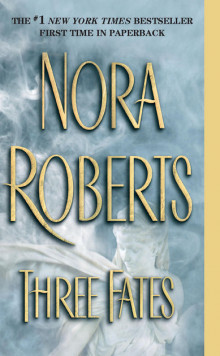 Three Fates
Three Fates Mind Over Matter
Mind Over Matter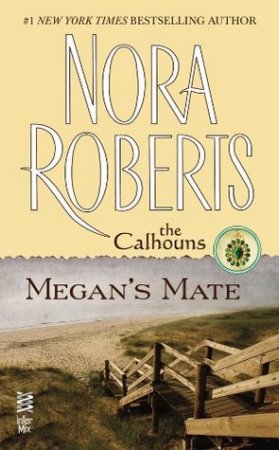 Megan's Mate
Megan's Mate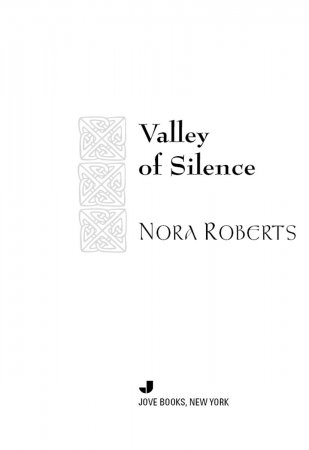 Valley of Silence
Valley of Silence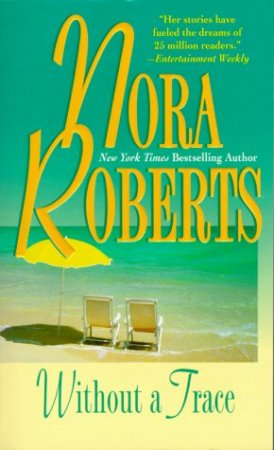 Without A Trace
Without A Trace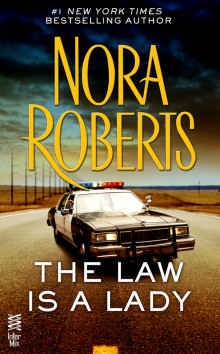 The Law is a Lady
The Law is a Lady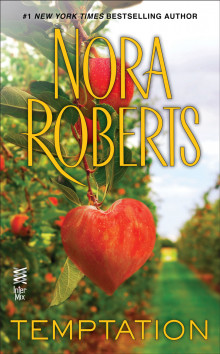 Temptation
Temptation Dance to the Piper
Dance to the Piper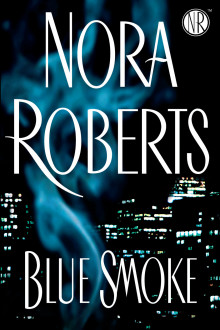 Blue Smoke
Blue Smoke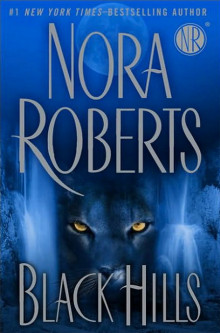 Black Hills
Black Hills The Heart's Victory
The Heart's Victory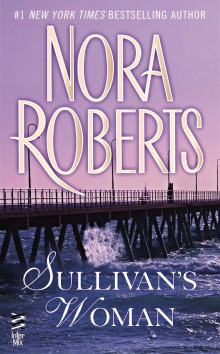 Sullivan's Woman
Sullivan's Woman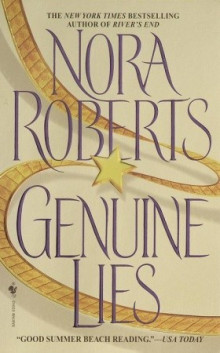 Genuine Lies
Genuine Lies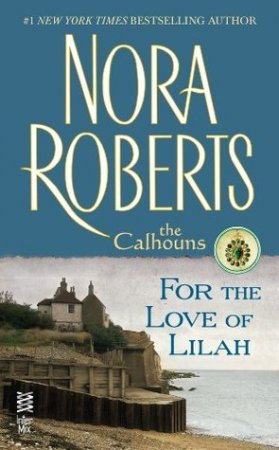 For the Love of Lilah
For the Love of Lilah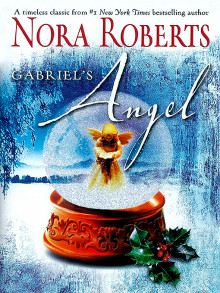 Gabriel's Angel
Gabriel's Angel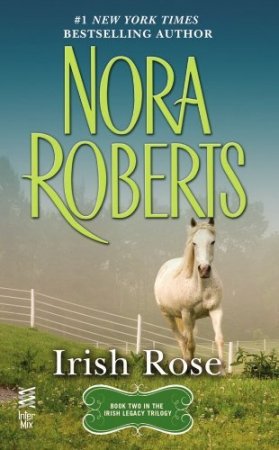 Irish Rose
Irish Rose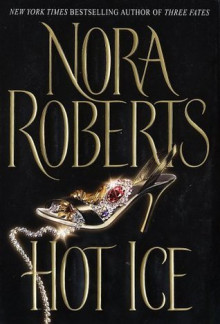 Hot Ice
Hot Ice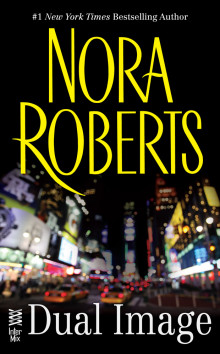 Dual Image
Dual Image Lawless
Lawless Catch My Heart
Catch My Heart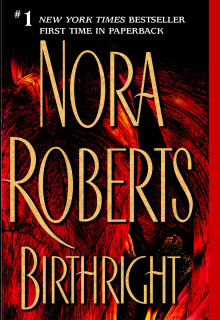 Birthright
Birthright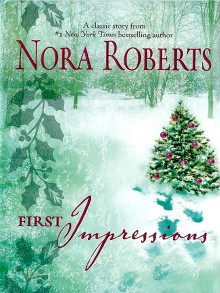 First Impressions
First Impressions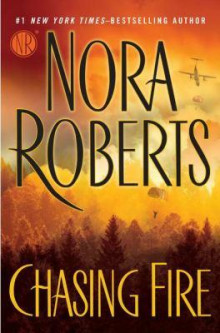 Chasing Fire
Chasing Fire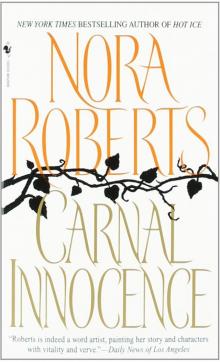 Carnal Innocence
Carnal Innocence Best Laid Plans
Best Laid Plans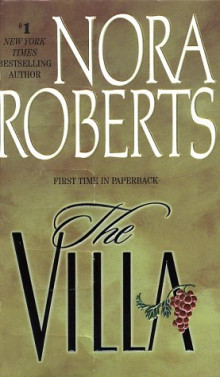 The Villa
The Villa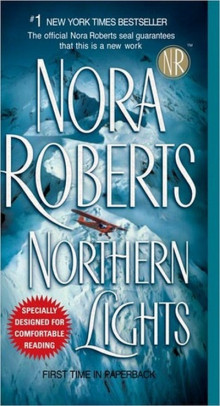 Northern Lights
Northern Lights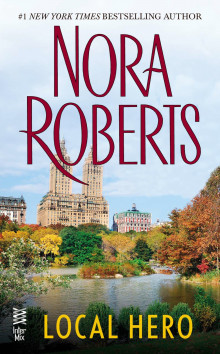 Local Hero
Local Hero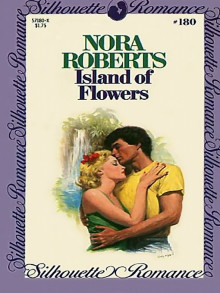 Island of Flowers
Island of Flowers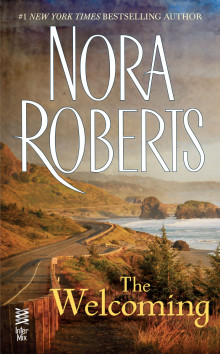 The Welcoming
The Welcoming All I Want for Christmas
All I Want for Christmas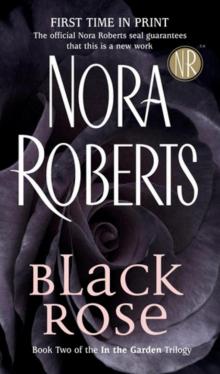 Black Rose
Black Rose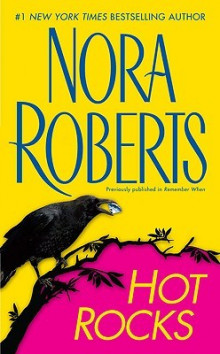 Hot Rocks
Hot Rocks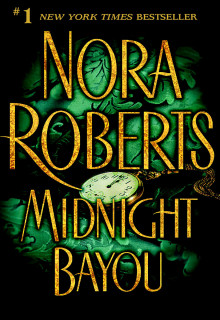 Midnight Bayou
Midnight Bayou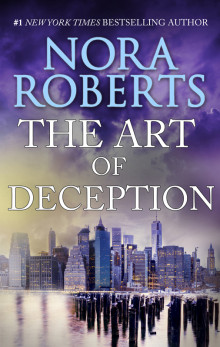 The Art of Deception
The Art of Deception From This Day
From This Day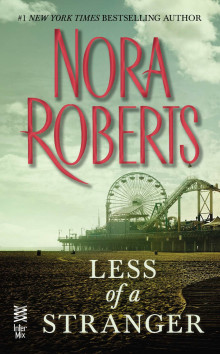 Less of a Stranger
Less of a Stranger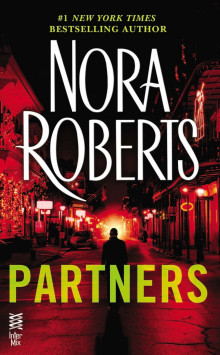 Partners
Partners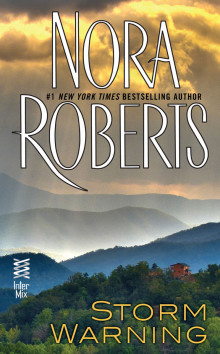 Storm Warning
Storm Warning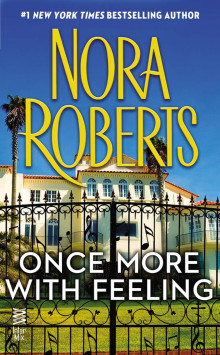 Once More With Feeling
Once More With Feeling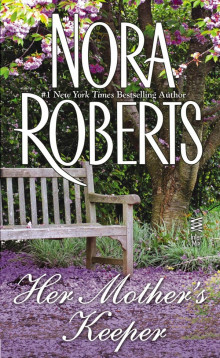 Her Mother's Keeper
Her Mother's Keeper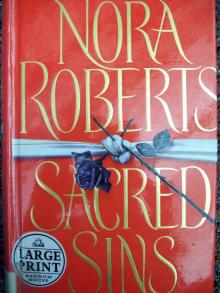 Sacred Sins
Sacred Sins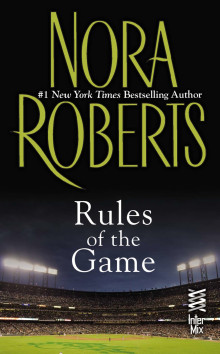 Rules of the Game
Rules of the Game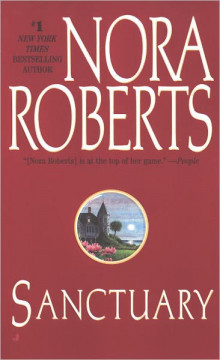 Sanctuary
Sanctuary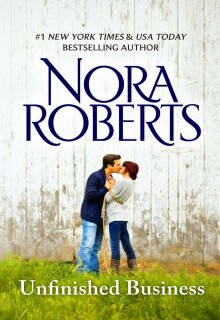 Unfinished Business
Unfinished Business Cordina's Royal Family Collection
Cordina's Royal Family Collection Dangerous Embrace
Dangerous Embrace One Summer
One Summer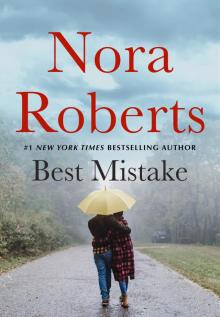 The Best Mistake
The Best Mistake Boundary Lines
Boundary Lines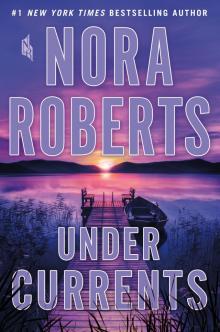 Under Currents
Under Currents The Stanislaski Series Collection, Volume 1
The Stanislaski Series Collection, Volume 1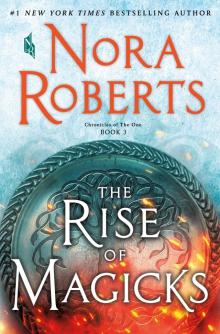 The Rise of Magicks
The Rise of Magicks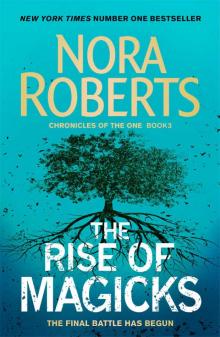 The Rise of Magicks (Chronicles of The One)
The Rise of Magicks (Chronicles of The One)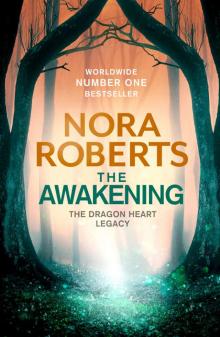 The Awakening: The Dragon Heart Legacy Book 1
The Awakening: The Dragon Heart Legacy Book 1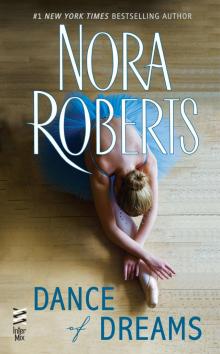 Dance of Dreams
Dance of Dreams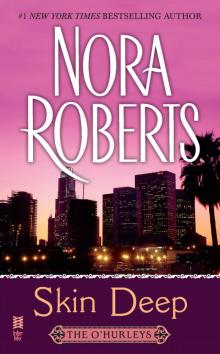 Skin Deep: The O'Hurleys
Skin Deep: The O'Hurleys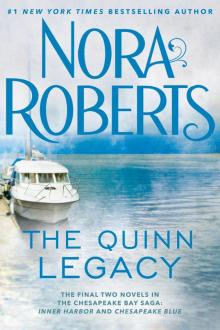 The Quinn Legacy: Inner Harbor ; Chesapeake Blue
The Quinn Legacy: Inner Harbor ; Chesapeake Blue![[Chronicles of the One 03.0] The Rise of Magicks Read online](http://i1.bookreadfree.com/11/chronicles_of_the_one_03_0_the_rise_of_magicks_preview.jpg) [Chronicles of the One 03.0] The Rise of Magicks
[Chronicles of the One 03.0] The Rise of Magicks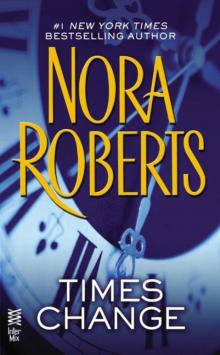 Times Change
Times Change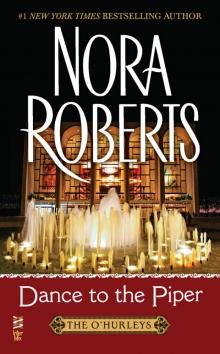 Dance to the Piper: The O'Hurleys
Dance to the Piper: The O'Hurleys Christmas In the Snow: Taming Natasha / Considering Kate
Christmas In the Snow: Taming Natasha / Considering Kate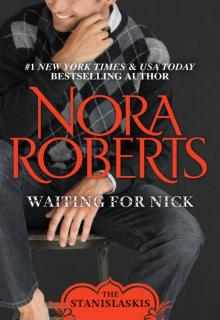 Waiting for Nick
Waiting for Nick Summer Desserts
Summer Desserts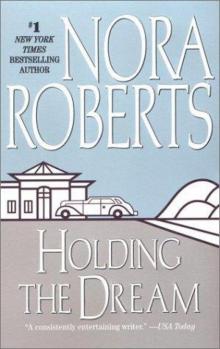 Dream 2 - Holding the Dream
Dream 2 - Holding the Dream The Novels of Nora Roberts, Volume 2
The Novels of Nora Roberts, Volume 2 In the Garden Trilogy
In the Garden Trilogy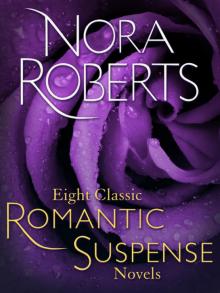 Eight Classic Nora Roberts Romantic Suspense Novels
Eight Classic Nora Roberts Romantic Suspense Novels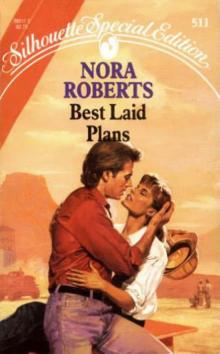 Best Laid Plans jh-2
Best Laid Plans jh-2 From the Heart
From the Heart Holiday Wishes
Holiday Wishes Dream 1 - Daring to Dream
Dream 1 - Daring to Dream Second Nature
Second Nature Summer Pleasures
Summer Pleasures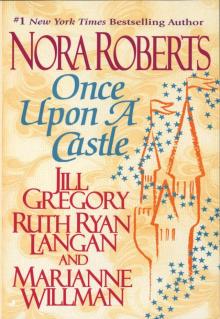 Once Upon a Castle
Once Upon a Castle Stars of Mithra Box Set: Captive StarHidden StarSecret Star
Stars of Mithra Box Set: Captive StarHidden StarSecret Star Impulse
Impulse The Irish Trilogy by Nora Roberts
The Irish Trilogy by Nora Roberts The Pride Of Jared Mackade tmb-2
The Pride Of Jared Mackade tmb-2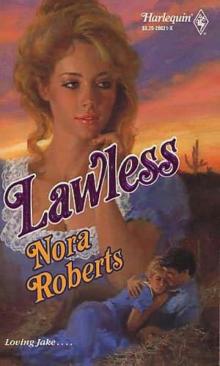 Lawless jh-3
Lawless jh-3 Taming Natasha
Taming Natasha Endless Summer
Endless Summer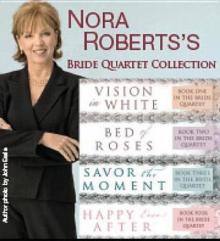 Bride Quartet Collection
Bride Quartet Collection Happy Ever After tbq-4
Happy Ever After tbq-4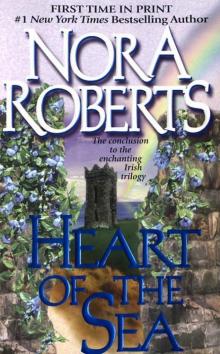 Heart Of The Sea goa-3
Heart Of The Sea goa-3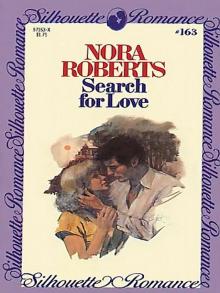 Search for Love
Search for Love Once upon a Dream
Once upon a Dream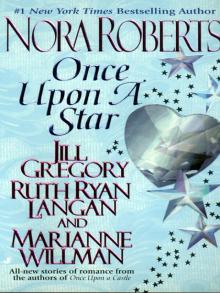 Once Upon a Star
Once Upon a Star Dream Trilogy
Dream Trilogy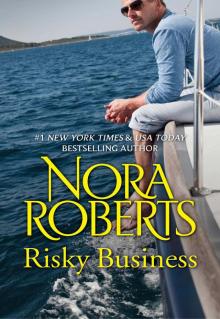 Risky Business
Risky Business The Novels of Nora Roberts, Volume 3
The Novels of Nora Roberts, Volume 3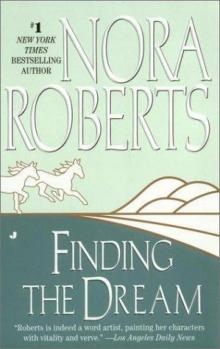 Dream 3 - Finding the Dream
Dream 3 - Finding the Dream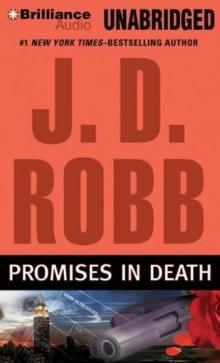 Promises in Death id-34
Promises in Death id-34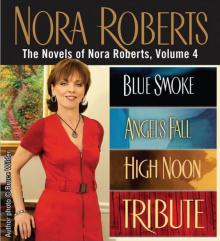 The Novels of Nora Roberts, Volume 4
The Novels of Nora Roberts, Volume 4 The Perfect Hope ib-3
The Perfect Hope ib-3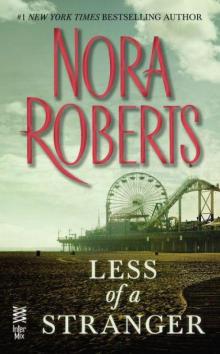 Less than a Stranger
Less than a Stranger Savour the Moment: Now the Big Day Has Finally Arrived, It's Time To...
Savour the Moment: Now the Big Day Has Finally Arrived, It's Time To... Convincing Alex
Convincing Alex Bed of Roses tbq-2
Bed of Roses tbq-2 Savour the Moment tbq-3
Savour the Moment tbq-3 Lessons Learned
Lessons Learned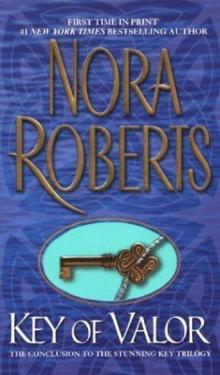 Key Of Valor k-3
Key Of Valor k-3 Red lily gt-3
Red lily gt-3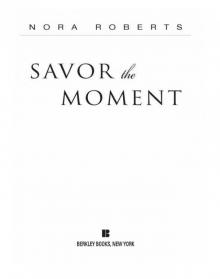 Savor the Moment
Savor the Moment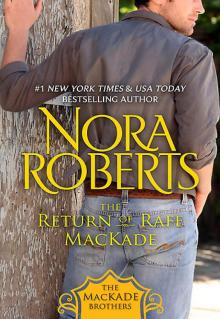 The Return Of Rafe Mackade tmb-1
The Return Of Rafe Mackade tmb-1 For The Love Of Lilah tcw-3
For The Love Of Lilah tcw-3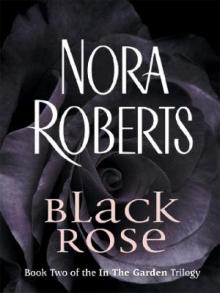 Black Rose gt-2
Black Rose gt-2 Novels: The Law is a Lady
Novels: The Law is a Lady Chesapeake Bay Saga 1-4
Chesapeake Bay Saga 1-4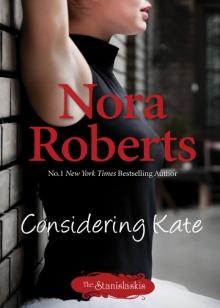 Considering Kate
Considering Kate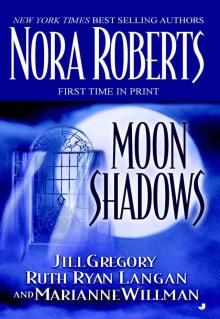 Moon Shadows
Moon Shadows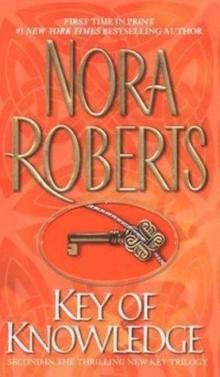 Key of Knowledge k-2
Key of Knowledge k-2 The Sign of Seven Trilogy
The Sign of Seven Trilogy Once Upon a Kiss
Once Upon a Kiss The Novels of Nora Roberts, Volume 5
The Novels of Nora Roberts, Volume 5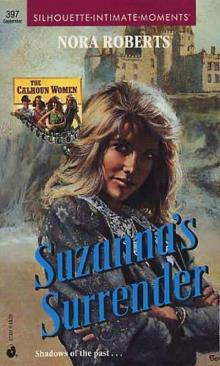 Suzanna's Surrender tcw-4
Suzanna's Surrender tcw-4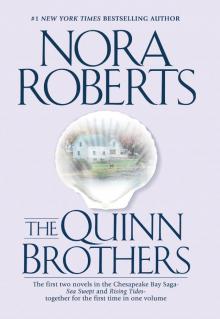 The Quinn Brothers
The Quinn Brothers Falling for Rachel
Falling for Rachel Brazen Virtue
Brazen Virtue Time Was
Time Was The Gallaghers of Ardmore Trilogy
The Gallaghers of Ardmore Trilogy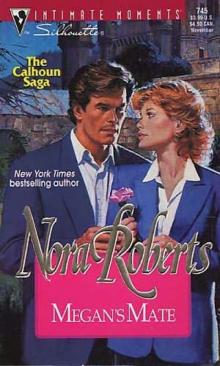 Megan's Mate tcw-5
Megan's Mate tcw-5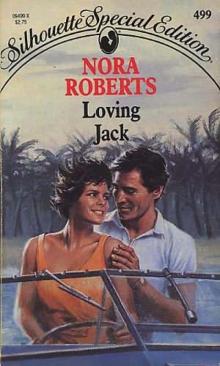 Loving Jack jh-1
Loving Jack jh-1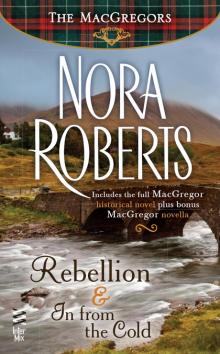 Rebellion & In From The Cold
Rebellion & In From The Cold Blue Dahlia gt-1
Blue Dahlia gt-1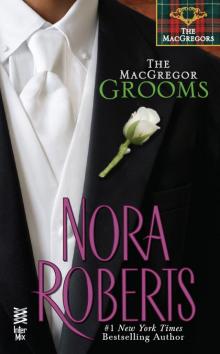 The MacGregor Grooms
The MacGregor Grooms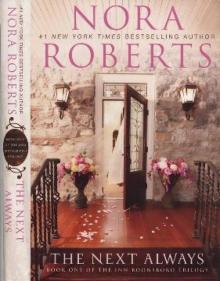 The Next Always tibt-1
The Next Always tibt-1 The Heart Of Devin Mackade tmb-3
The Heart Of Devin Mackade tmb-3 The Novels of Nora Roberts Volume 1
The Novels of Nora Roberts Volume 1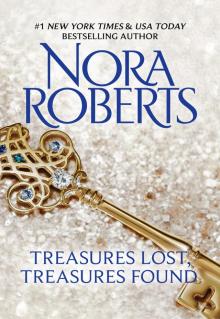 Treasures Lost, Treasures Found
Treasures Lost, Treasures Found Nora Roberts's Circle Trilogy
Nora Roberts's Circle Trilogy The Key Trilogy
The Key Trilogy The Fall Of Shane Mackade tmb-4
The Fall Of Shane Mackade tmb-4 A Will And A Way
A Will And A Way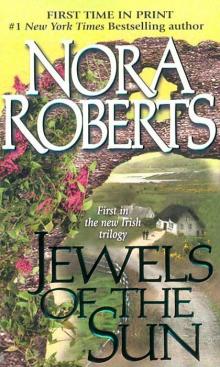 Jewels of the Sun goa-1
Jewels of the Sun goa-1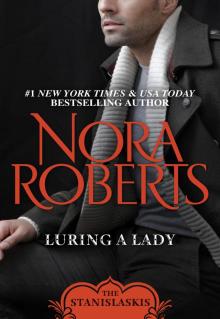 Luring a Lady
Luring a Lady